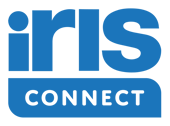How can you become an effective coach in your school and beyond?
Research has shown that coaching and mentoring are very effective CPD tools. Whilst external coaches can be very effective they can also be expensive, so many schools are leveraging the skills, knowledge and expertise that already exists within the school.
But coaching is not easy! As a teacher, you're an expert in teaching young people, however coaching another adult is a different kettle of fish and requires additional skills
Advice and Resources for Coaches
There's a myriad of resources on the internet full of ideas, tips and expertise that can help, from blogs and videos to articles and infographics. So whether you learn better through studying visuals or by reading, there's something for everyone.
5 tips to help become an effective coach:
1. Is really something you want to do
Before you begin ask yourself if this is really something you want to do. Some teachers have the notion that coaching is a break from teaching, but coaching comes with its own set of challenges from tackling distrust to establishing clear roles and responsibilities. Check out this blog of 5 things to consider before coaching
2. As a coach you need to focus on the coachees future potential.
Don't get hung up on preconceptions based on past performances, instead look for solutions not problems. Find out more about the Principles of coaching.
3. Learn to give constructive criticism by making a sandwich.
Begin with some positive comments, offer the person praise and compliments (the first slice of bread) before then giving the criticism (the filing). End by reminding the person of their strengths and offer them support in the areas for improvement (the second slice of bread). Take a look at this How to give constructive criticism graphic for more info.
4. Make a list of goals and stick to them.
Identifying targets to works towards will help both you and the coachee because they provide a clear reference point to set tasks around and refer back to. This infographic depicting The Coaching Cycle reveals more.
5. Invite your coachee to tell their story.
Everyone has a story, but we're rarely asked to share it. One of the key ways to turn resistance into openness is by building a relationship based on trust and understanding. So try spending some time simply connecting with your coachee and ask them these questions:
- How and why did you become an educator?
- What are your fears about engaging in this coaching work together?
- If you opened yourself to coaching, what do you think might be possible? What could we achieve together?
- What's been your best experience of support or mentoring?
- How can I best support you?
More advice on How to coach a resistant teacher and How to make feedback formative.
We've also caught up with Education Consultant, Mike Fleetham, and asked him for some tips and advice on becoming a coach for teachers and building sustainable coaching cultures in school. Watch the videos below to find out more.



Leave a comment:
Get blog notifications
Keep up to date with our latest professional learning blogs.